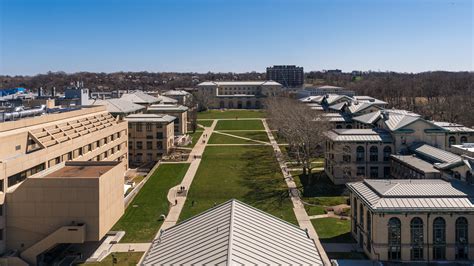Carnegie Mellon University (CMU) is a renowned research university known for its academic excellence and cutting-edge research. As such, aspiring graduate students face a highly competitive admissions process. This article provides a detailed analysis of CMU’s graduate acceptance rate, offering insights into the factors that influence admissions decisions and strategies to enhance your chances of success.

Understanding the Acceptance Rate
The graduate acceptance rate at CMU varies depending on the program and department. However, the overall acceptance rate for the 2022-2023 application cycle was approximately 16%. This means that for every 100 applications received, only 16 are accepted.
Understanding the acceptance rate can help you gauge the competitiveness of the program you are applying to and adjust your application strategy accordingly.
Factors Influencing Admissions Decisions
CMU considers a holistic range of factors when evaluating graduate applications, including:
- Academic Transcript: CMU places a strong emphasis on your academic performance, including your GPA and coursework.
- Standardized Test Scores: Standardized tests such as the GRE or GMAT are often required for graduate programs. Strong scores can bolster your application.
- Research Experience: CMU values applicants with prior research experience, especially in fields related to their desired program.
- Letters of Recommendation: Strong letters of recommendation from professors or supervisors can provide valuable insights into your academic abilities and potential.
- Statement of Purpose: Your statement of purpose should clearly articulate your research interests, career goals, and why CMU is the right fit for you.
Strategies for Enhancing Your Chances
To increase your chances of admission to CMU’s graduate programs, consider the following strategies:
- Maintain a Strong Academic Record: Focus on achieving a high GPA in your undergraduate or master’s coursework, especially in courses relevant to your desired program.
- Pursue Research Experience: Participate in undergraduate research projects or internships to gain hands-on experience and develop your research skills.
- Prepare for Standardized Tests: Dedicate sufficient time to studying for standardized tests such as the GRE or GMAT. Aim for competitive scores that reflect your academic abilities.
- Craft a Compelling Statement of Purpose: Spend ample time developing a well-written statement of purpose that showcases your research interests, career aspirations, and why CMU is your top choice.
- Seek Strong Letters of Recommendation: Ask for letters of recommendation from individuals who can speak to your academic achievements, research abilities, and personal qualities.
Additional Tips and Tricks
- Review the program website thoroughly: Familiarize yourself with the program’s requirements and research areas to ensure a good fit.
- Attend virtual or in-person events: Participate in program-specific events or webinars to learn more about the program and connect with faculty.
- Network with professors and students: Reach out to professors and current students in your field of interest to discuss your research ideas and obtain valuable insights.
- Consider applying early: Some programs offer priority admission for applications submitted before a specific deadline.
- Be patient and persistent: The application and admissions process can be time-consuming. Stay motivated and follow up with the admissions office as needed.
Pain Points and Motivations
Pain Points:
- The highly competitive admissions process can be stressful and intimidating for applicants.
- The low acceptance rate can leave many qualified candidates feeling disappointed.
- The cost of graduate education can be a financial burden for some students.
Motivations:
- CMU’s reputation for academic excellence and research innovation attracts applicants from around the world.
- The university’s interdisciplinary approach and focus on real-world applications appeal to students seeking to make a meaningful impact.
- The opportunity to collaborate with leading researchers and industry partners provides valuable networking and career advancement opportunities.
Table 1: CMU Graduate School Acceptance Rates by Program (2022-2023)
| Program | Acceptance Rate |
|---|---|
| Heinz College | 17% |
| Mellon College of Science | 16% |
| Tepper School of Business | 15% |
| Dietrich College of Humanities and Social Sciences | 14% |
| College of Engineering | 13% |
Table 2: Factors Influencing CMU’s Admissions Decisions
| Factor | Importance |
|---|---|
| Academic Transcript | High |
| Research Experience | High |
| Standardized Test Scores | Medium-High |
| Letters of Recommendation | Medium-High |
| Statement of Purpose | Medium |
Table 3: Strategies for Enhancing Your Chances of Admission
| Strategy | Impact |
|---|---|
| Maintain a Strong Academic Record | High |
| Pursue Research Experience | High |
| Prepare for Standardized Tests | Medium-High |
| Craft a Compelling Statement of Purpose | Medium-High |
| Seek Strong Letters of Recommendation | Medium |
Table 4: Tips and Tricks for CMU’s Graduate Application Process
| Tip | Benefit |
|---|---|
| Review the program website thoroughly | Ensures alignment with program requirements |
| Attend virtual or in-person events | Connects you with faculty and current students |
| Network with professors and students | Provides valuable insights and networking opportunities |
| Consider applying early | May increase your chances of admission |
| Be patient and persistent | Shows your dedication and commitment |
